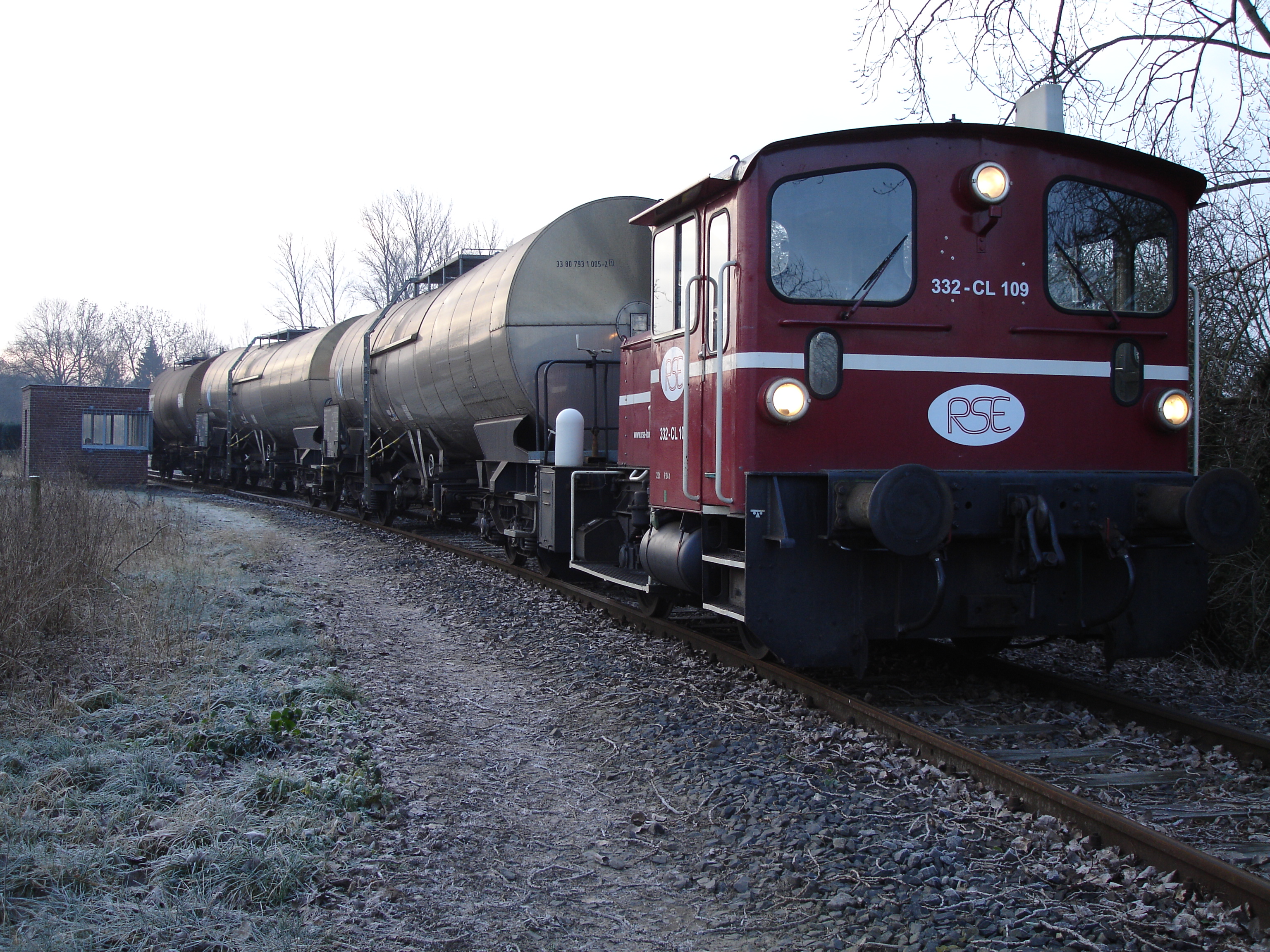|
Rhein-Sieg-Eisenbahn
The Rhein-Sieg-Eisenbahn or RSE is a German company founded by the '' Verkehrsclub Deutschland'' (Transport Club of Germany) and interested private individuals with the primary purpose of saving a threatened industrial line, the Beuel–Großenbusch railway. A joint venture ''RSE Cargo'' was formed with logistics company Hoyer with RSE providing a railway company licence. In 2000 Hoyer acquired a majority share in ''RSE Cargo'' and renamed it ''Hoyer Railserv''. History Today the RSE operates Germany-wide, not least as the railway infrastructure company for just under of railway lines in three different in federal states (as at: October 2008): * Bad Endorf–Obing, Bavaria * Bonn-Beuel - Hangelar (in the town of Sankt Augustin), North Rhine-Westphalia (NRW) * Eggmühl–Langquaid, Bavaria * Höddelbusch - Schleiden ( Olef Valley Railway), NRW * Osberghausen (in the town of Engelskirchen) - Oberwiehl (Wiehl Valley Railway), NRW * Rahden - Uchte, NRW / Lower Saxony ... [...More Info...] [...Related Items...] OR: [Wikipedia] [Google] [Baidu] |
Eggmühl–Langquaid Railway
The Eggmühl–Langquaid railway also known as the Schierling–Langquaid branch line (''Lokalbahn Schierling–Langquaid'') or Laaber Valley Railway (''Laabertalbahn''), is a standard gauge branch line in the state of Bavaria in southern Germany. It runs from Eggmühl to Langquaid and is operated by the Rhein-Sieg-Eisenbahn (RSE). History The line was opened in 1903. Goods traffic was hauled by steam traction until 1964 and thereafter with diesel locomotives. In 1968 passenger services were withdrawn. In 1996 it was announced that goods traffic was also going to be closed down. However, in cooperation with a local initiative and local politicians, the Rhein-Sieg-Eisenbahn took over the Eichbühl–Lanquaid section from DB Netz on 1 January 2000. Five years later the section from Eggmühl to Eichbühl was added. Since 2001, goods trains have been hauled by a Class MV 9 locomotive built by Orenstein & Koppel, which had been purchased from the Zeil am Main sugar factory. The g ... [...More Info...] [...Related Items...] OR: [Wikipedia] [Google] [Baidu] |
Bonn-Beuel Station
Bonn-Beuel station is on the East Rhine Railway in the Bonn district of Beuel in the German state of North Rhine-Westphalia. Infrastructure The station was opened on 1 March 1871 and has three platform tracks and several sidings. Somewhat hidden from the station building, there are some tracks which are used by the Rhein-Sieg-Eisenbahn for special passenger services, especially during the Pützchen's market (a five or six day fair usually held in September). In addition, there is also a freight shed at the station. It, including its unloading and loading roads, as well as the entrance building, the two platforms and the platform canopy are heritage-listed. The station has some special features compared to neighbouring stations. The extensive track layout for local freight transport (which was usual for German stations until the 1980s) have not been removed in Beuel but are almost completely preserved and operational. For example, the freight shed can still be reached via its ... [...More Info...] [...Related Items...] OR: [Wikipedia] [Google] [Baidu] |
Lower Saxony
Lower Saxony (german: Niedersachsen ; nds, Neddersassen; stq, Läichsaksen) is a German state (') in northwestern Germany. It is the second-largest state by land area, with , and fourth-largest in population (8 million in 2021) among the 16 ' federated as the Federal Republic of Germany. In rural areas, Northern Low Saxon and Saterland Frisian language, Saterland Frisian are still spoken, albeit in declining numbers. Lower Saxony borders on (from north and clockwise) the North Sea, the states of Schleswig-Holstein, Hamburg, , Brandenburg, Saxony-Anhalt, Thuringia, Hesse and North Rhine-Westphalia, and the Netherlands. Furthermore, the Bremen (state), state of Bremen forms two enclaves within Lower Saxony, one being the city of Bremen, the other its seaport, Bremerhaven (which is a semi-enclave, as it has a coastline). Lower Saxony thus borders more neighbours than any other single '. The state's largest cities are state capital Hanover, Braunschweig (Brunswick), Lüneburg, ... [...More Info...] [...Related Items...] OR: [Wikipedia] [Google] [Baidu] |
Kall, North Rhine-Westphalia
Kall is a municipality in the district of Euskirchen in the state of North Rhine-Westphalia, Germany. It is located in the Eifel The Eifel (; lb, Äifel, ) is a low mountain range in western Germany and eastern Belgium. It occupies parts of southwestern North Rhine-Westphalia, northwestern Rhineland-Palatinate and the southern area of the German-speaking Community of ... hills, approximatively 20 km south-west of Euskirchen. Kall consists of the following districts: Anstois, Benenberg, Diefenbach, Dottel, Frohnrath, Gillenberg, Golbach, Keldenich, Krekel, Rinnen, Roder, Rüth, Scheven, Sistig, Sötenich, Steinfeld, Steinfelderheistert, Straßbüsch, Urft, Wahlen, Wallenthal, Wallenthalerhöhe, and Kall itself. References External links Municipalities in North Rhine-Westphalia Euskirchen (district) {{Euskirchen-geo-stub ... [...More Info...] [...Related Items...] OR: [Wikipedia] [Google] [Baidu] |
DB Netz
DB Netz AG is a major subsidiary of Deutsche Bahn that owns and operates a majority of the German railway system (2019: 33,291 km). It is one of the largest railway infrastructure manager by length and transport volume of its network. The company was established in the course of the second stage of the German rail reform as a subsidiary of Deutsche Bahn AG. DB Netz is headquartered in Frankfurt and it has seven regional divisions ("Regionalbereiche", RB) and a central division. The locations of its regional headquarters are Berlin (RB east), Frankfurt (RB central), Duisburg (RB west), Hanover (RB north), Karlsruhe (RB southwest), Leipzig (RB southeast) and Munich Munich ( ; german: München ; bar, Minga ) is the capital and most populous city of the German state of Bavaria. With a population of 1,558,395 inhabitants as of 31 July 2020, it is the third-largest city in Germany, after Berlin and Ha ... (RB south). DB Netz AG is profitable from route fees but rec ... [...More Info...] [...Related Items...] OR: [Wikipedia] [Google] [Baidu] |
Menden Menden (, official name: ''Menden (Sauerland)''; Westphalian: ''Mennen'') is a city in the district Märkischer Kreis, in North Rhine-Westphalia, Germany. It is located at the north end of the Sauerland near the Ruhr river. History Menden's first churches were built in the 9th century. From 1180 on the |


